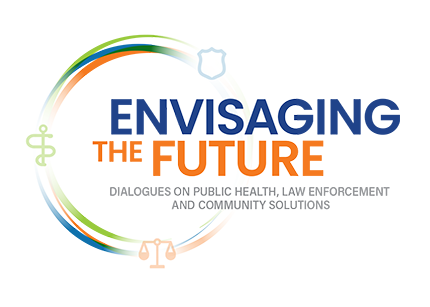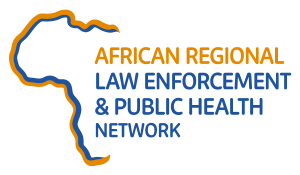
Aleksandr (Alex) Zelichenko, PhD, is a retired Police Colonel and Director of Central Asian Drug Policy Center. He is also a member of Journalists Association of Kyrgyzstan and National Writers Association of Kyrgyzstan.
During the law enforcement and judicial reform undertaken by the Kyrgyz Republic in recent years, a course was taken on the legislation improvement.
For these purposes the special working group, that gathered the best representatives of judicial practice, legal science, representatives of the non-governmental sector, experts from international organizations was formed. In 2016-2018 it almost completely revised the current criminal, procedural, executive legislation and etc.
The new Code of the Kyrgyz Republic on Violations; The Code of the Kyrgyz Republic on Misdemeanours; The Criminal Code of the Kyrgyz Republic; Criminal Procedure Code of the Kyrgyz Republic and other legislative acts were adopted.
The new Laws came into force on January 01, 2019.
In the general context changes were also made in the part of anti-drug legislation. Thus, Chapter 12 of the Violations Code, which consists of three sections (58-60), regulates violations against the order of control in the sphere of circulation of narcotic drugs, psychotropic substances, their analogues or precursors.
Section 58 entails punishment for violation of the production and circulation of narcotic drugs, psychotropic substances or their analogues regulations.
Section 59 identify the liability for violation of the destruction of narcotic drugs, psychotropic substances or their analogues procedures.
Section 60 – for violation of the conducting an inventory of narcotic drugs or psychotropic substances procedures.
All three of the above determine different fines and penalties level.
Responsibility for the use of narcotic drugs or psychotropic substances in public places is equated to the use of alcoholic beverages. Penalties in the form of a fine for these violations are subject of the Section 81 (Chapter 15) of the Violation Code, which is called “Use of narcotic drugs or psychotropic substances, drinking alcohol in public places.”
Thus, minor violations in circulation of narcotic drugs, psychotropic substances, their analogues or precursors, as well as in public order (use of narcotic or psychotropic substances in public places), provided for by the Code of the Kyrgyz Republic, are decriminalized.
The legislator calls the Misconduct a somewhat more serious act than a Violation. The Code of the Kyrgyz Republic “On Misdemeanours” contains Chapter 24, which establishes the liability for misconduct in narcotic drugs, psychotropic substances, their analogues or precursors trafficking. Chapter twenty-four consists of two sections:
Section 123 – Illegal production of narcotic drugs or psychotropic substances, their analogs and precursors without the purpose of selling in small and large amounts.
and
Section 124 – Sowing and growing of plants containing narcotic drugs in small sizes.
As a punitive measure for the acts specified in Articles 123 and 124, the legislator provides a variety of penalties, such as the imposition of a fine and/or freedom restriction.
At the same time, according to Section 46 of the Code of the Kyrgyz Republic “On Misdemeanors”, “Restriction of freedom consists in the imposition by a court on a person found guilty of certain obligations restricting freedom and is served at his place of residence without isolation from society under the supervision of a probation body.”
And finally, the Criminal Code of the Kyrgyz Republic (Chapter 38), which criminalizes narcotic drugs, psychotropic substances, their analogues, and precursors trafficking.
The thirty-eighth chapter of the Criminal Code consists of 10 sections:
Section 267, part 1. Illegal manufacture of narcotic drugs, psychotropic substances, and their analogues for the purpose of sale – shall be punished by imprisonment of the 3rd category with a fine of the 3rd category.
Part 2. The same acts committed:
1) By a group of persons acting based on prior agreement.
2) On a large scale
Are punished with imprisonment of 4th category with a fine of 4th category.
Part 3. Acts described in parts 1 or 2 of this section, committed on an especially large scale, as well as the sale of narcotic drugs, psychotropic substances and their analogues to a known minor, – shall be punished by imprisonment of the 5th category with a fine of the 5th category.
At the same time, it is envisaged that persons who have committed a crime under this section, who voluntarily surrendered narcotic drugs, psychotropic substances or their analogues and actively contribute to the disclosure or suppression of crimes related to illegal drug and psychotropic trafficking, the exposure of the perpetrators, the discovery of property obtained in a criminal way, are exempted from criminal liability for an act provided for in this article. Voluntary surrender, however, does not include extradition during the arrest or investigation procedures.
Section 268. Illegal development of narcotic drugs, psychotropic substances and their analogues without the purpose of sale also consists of two parts:
- All of the above, committed on a large scale, is punishable by a fine of the 6th category or imprisonment of the 2nd category.
- 2. The same acts committed on an especially large scale – are punished with imprisonment of the 3rd category with a fine of the 3rd category
Section 269 of the Criminal Code of the Kyrgyz Republic entails liability for the illegal precursors manufacture
Section 270 – for the smuggling of items in respect of which special Regulations concerning transfer across the customs border of the Kyrgyz Republic are established, including narcotic drugs, psychotropic substances, their analogues and precursors.
Section 271 criminalizes embezzlement or extortion of narcotic drugs or psychotropic substances.
Section 272 – for convincing to consume narcotic drugs or psychotropic substances. Especially, due to the relatively widespread prevalence, I would like to highlight paragraph 4 of the second part of the Section – “in educational institutions, entertainment establishments, sports facilities, as well as in premises used in the field of entertainment (leisure).” If such actions were committed, the legislator has provided for heightened penal measure – imprisonment of the second category.
According to the Criminal Code of the Kyrgyz Republic, also criminalized: sowing and growing plants containing narcotic drugs (Section 273); Violation of the rules for the legal circulation of narcotic drugs, psychotropic substances, their analogues and precursors (Section 274); Organization or maintenance of dens for the consumption of narcotic drugs, psychotropic substances, their analogues and precursors (Section 275); as well as Illegal issuance or forgery of a document for obtaining narcotic drugs, psychotropic substances and their analogues (Section 276).
In Chapter 39, the legislator provided for liability for crimes against public health. Only two sections of this chapter are of interest to us:
Section 277 – Illicit Trafficking of Strong or Poisonous Substances for distribution;
and
278 – Illicit Trafficking of Strong or Poisonous Substances
All of the abovementioned crimes, depending on the aggravating circumstances and qualifying criteria, are punishable by imprisonment and fines of various categories.
Note: the amount of fines of various categories and the terms of imprisonment of various categories are determined by the legislator in Sections 68 and 70 of the Criminal Code of the Kyrgyz Republic. At the same time, fines are calculated in notional, and range from 200 to 3000 estimates.
Deprivation of liberty, depending on its category, ranges from six months to 15 years.
Lifelong imprisonment (Section 71) does not apply to persons who have committed crimes in the analysed category.






